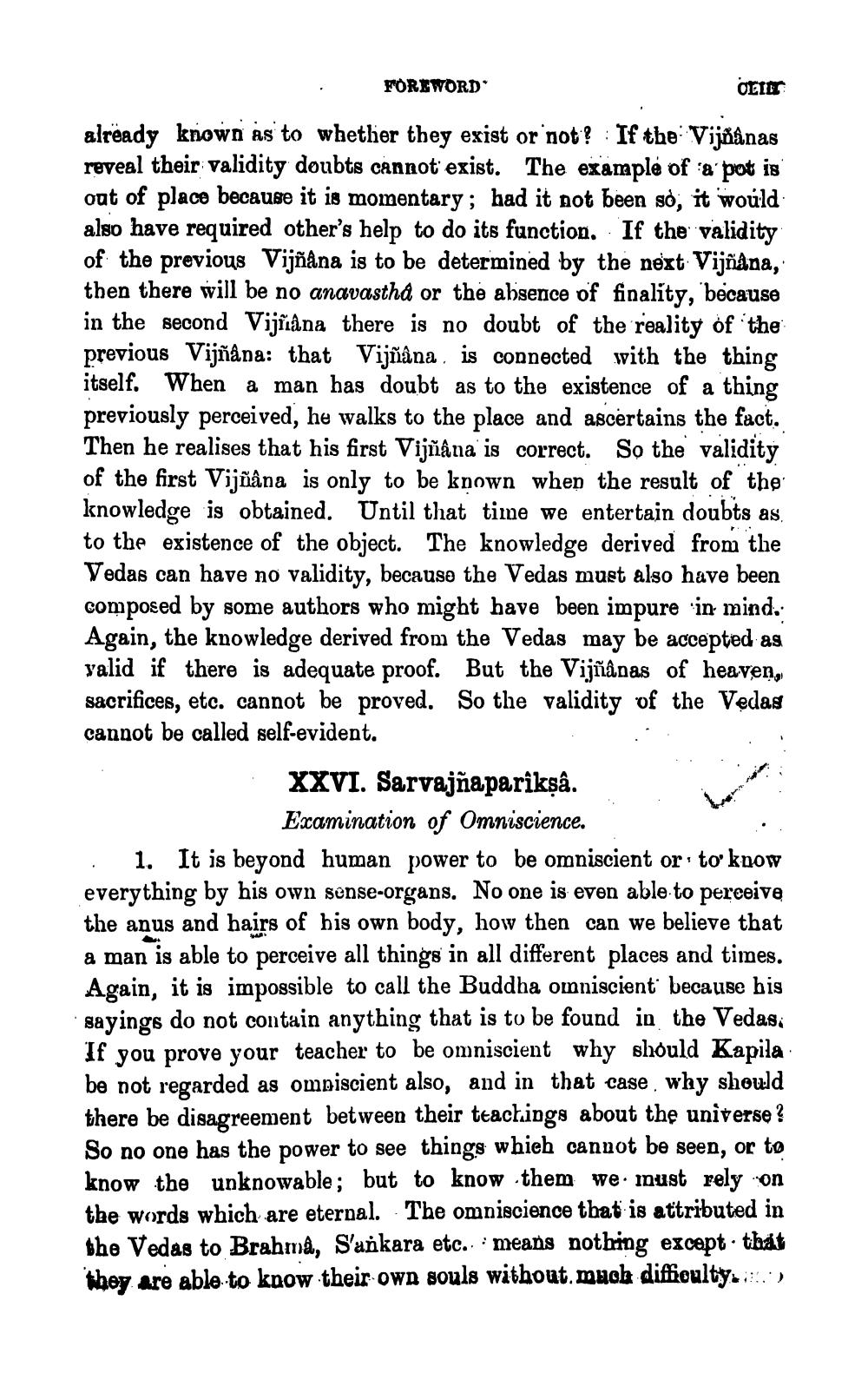________________
FOREWORD
OEILT
already known as to whether they exist or not? If the Vijäknas reveal their validity doubts cannot exist. The example of a pot is out of place because it is momentary; had it not been so, it would also have required other's help to do its function. If the validity of the previous Vijñana is to be determined by the next : Vijñana, then there will be no anavasthå or the absence of finality, because in the second Vijîâna there is no doubt of the reality of the previous Vijñana: that Vijñâna, is connected with the thing itself. When a man has doubt as to the existence of a thing previously perceived, he walks to the place and ascertains the fact. Then he realises that his first Vijñâna is correct. So the validity of the first Vijñâna is only to be known when the result of the knowledge is obtained. Until that time we entertain doubts as to the existence of the object. The knowledge derived from the Vedas can have no validity, because the Vedas must also have been composed by some authors who might have been impure in mind. Again, the knowledge derived from the Vedas may be accepted as valid if there is adequate proof. But the Vijñâ nas of heaven, sacrifices, etc. cannot be proved. So the validity of the Vedas cannot be called self-evident. XXVI. Sarvajñapariksa.
Wann Examination of Omniscience. : 1. It is beyond human power to be omniscient or: to know everything by his own sense-organs. No one is even able to perceive the anus and hairs of his own body, how then can we believe that a man is able to perceive all things in all different places and times. Again, it is impossible to call the Buddha omniscient because his sayings do not contain anything that is to be found in the Vedasi If you prove your teacher to be omniscient why should Kapila be not regarded as omniscient also, and in that case, why should there be disagreement between their teachings about the universe ? So no one has the power to see things whieh cannot be seen, or to know the unknowable; but to know them we must rely on the words which are eternal. The omniscience that is attributed in the Vedas to Brahma, Sankara etc. : means nothing except that they are able to know their own souls without much difficulty )




